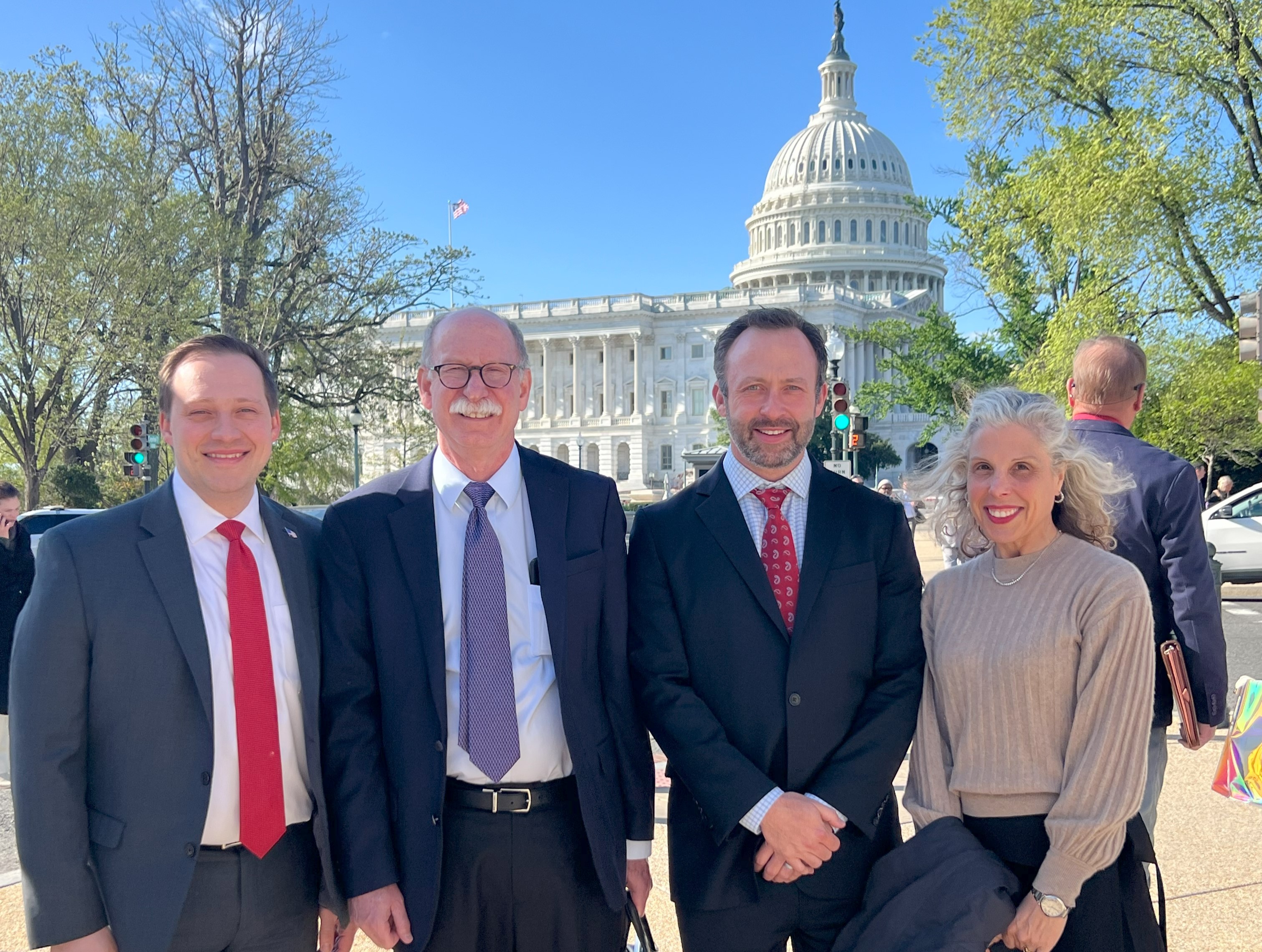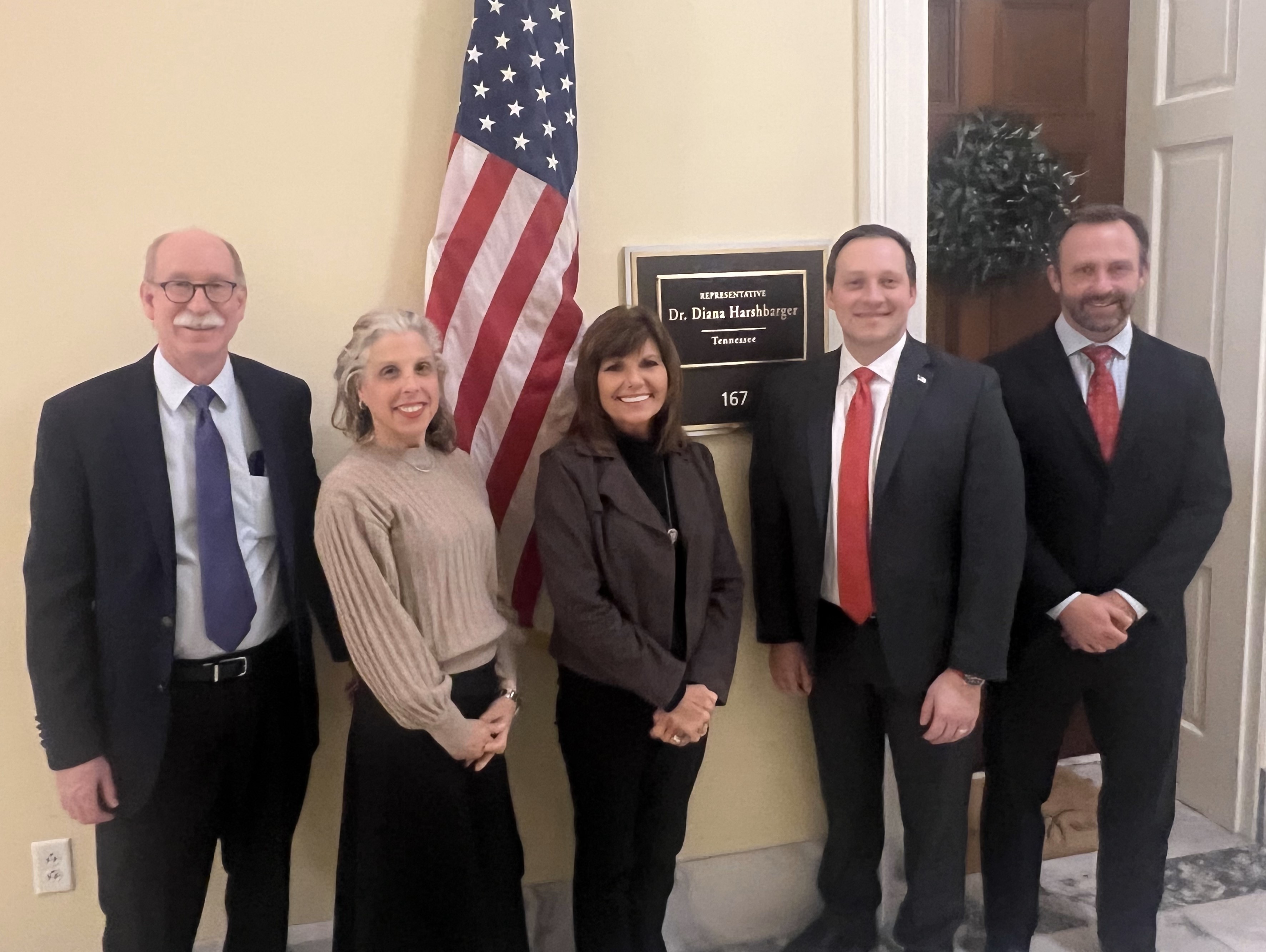LUGPA April Fly-In Recap:
|
 |
|
 |
|
 |
|
 |
|
In April, LUGPA leaders and members traveled to Washington, D.C. to meet with lawmakers and advance key policy priorities impacting independent urology and patient access to care. The Fly-In took place during a particularly complex period on Capitol Hill—amid escalating budget reconciliation debates and new tariff proposals that could shift the economic landscape for providers and patients alike.
Despite the challenging climate, LUGPA members engaged in over 21 meetings with House offices to ensure that urologists’ voices were heard on Medicare reimbursement, access to specialty drugs, site-neutrality, and preserving physician autonomy. Our message was clear: independent physician practices are essential to delivering high-quality, cost-effective care, and Congress must act to preserve their viability.
Key Issues Discussed:
Advocacy Efforts: LUGPA focused on three advancing key legislative priorities, including:
1. Ensuring Sustainable Physician Reimbursement & MACRA Reform (H.R. 879)
Medicare's physician payment model continues to fail independent practices. With conversion factor cuts taking effect on January 1, 2025, we urged Congress to pass H.R. 879—the Medicare Patient Access and Practice Stabilization Act—which would:
- Prevent the 2.83% conversion factor cut in 2025.
- Implement a 2% inflationary update to payments.
- Lay the foundation for permanent, structural Medicare reimbursement reform.
LUGPA emphasized that without inflation-adjusted updates and reforms to budget neutrality rules, independent practices face an unsustainable future. We also called on legislators to support broader MACRA reform, including replacing the Merit-based Incentive Payment System (MIPS) with a model that values quality and access.
2. Protecting Patient Access to In-Office Dispensed Medications (H.R. 2484)
We urged support for the Seniors’ Access to Critical Medications Act, which would clarify the In-Office Ancillary Services Exception (IOASE) to allow practices to resume mailing Medicare Part D medications to patients.
Why this matters:
- Helps elderly and rural patients avoid unnecessary pharmacy trips.
- Improves adherence to complex treatment regimens.
- Enables care coordination and medication monitoring by the prescribing physician’s staff.
- Lowers out-of-pocket costs by connecting patients with financial assistance programs.
This bipartisan legislation would reinstate a common-sense policy that was highly effective during the COVID-19 Public Health Emergency. LUGPA continues to document examples of medications being delayed, misdelivered, or sent to deceased patients due to current PBM practices. We are also working to help find additional cosponsors for the
3. Preserving Access to Life-Saving Part B Drugs
LUGPA also advocated for the Protecting Patient Access to Cancer and Complex Therapies Act, which addresses the unintended consequences of the Inflation Reduction Act’s (IRA) Medicare drug price negotiations.
The IRA's new pricing model threatens access by reducing physician reimbursement for negotiated drugs, potentially making it financially unsustainable for practices to administer these life-saving treatments.
This legislation would:
- Maintain the ASP+6% reimbursement structure for providers.
- Introduce a rebate from pharmaceutical companies to Medicare—rather than cutting physician payments.
- Protect patient access without raising costs for patients or taxpayers.
Independent practices cannot continue to provide Part B therapies if they are reimbursed below acquisition cost. This bill is a practical, budget-neutral solution that keeps patients in their communities and out of high-cost hospital settings.
Meetings and Engagement:
- In-Person Meetings:
- Sen. Roger Marshall (R-KS) (Committee on Health, Education, Labor, & Pensions)
- Rep. Lloyd Smucker (R-PA) (Ways and Means Committee)
- Rep. Diana Harshbarger (R-TN) (Energy and Commerce Committee)
- Rep. Buddy Carter (R-GA) (Energy and Commerce Committee)
- Rep. Tom Suozzi (D-NY) (Ways and Means Committee)
- Rep. Raul Ruiz (D-CA) (Energy and Commerce Committee)
- Staff Meetings:
- Rep. Andy Harris (R-MD) (Appropriations Committee)
- Rep. Ron Estes (R-KS) (Ways and Means Committee)
- Rep. Mike Kelly (R-PA) (Ways and Means Committee)
- Rep. Brian Fitzpatrick (R-PA) (Ways and Means Committee)
- Rep. Greg Murphy (R-NC) (Ways and Means Committee)
- Rep. Lloyd Smucker (R-PA) (Ways and Means Committee)
- Rep. Gus Bilirakis (R-FL) (Energy and Commerce Committee)
- Rep. Laurel Lee (R-FL) (Energy and Commerce Committee)
- Rep. Wasserman-Schultz (D-FL) (Appropriations Committee)
- Rep. Pat Ryan (D-NY) (Armed Services Committee)
- Rep. Sharice Davids (D-KS) (Agriculture Committee)
- Rep. Chrissy Houlahan (D-PA) (Armed Services Committee)
- Rep. Sarah McBride (D-DE) (Committee on Science, Space, and Technology)
- Rep. Robin Kelly (D-IL) (Energy and Commerce Committee)
- Rep. Dwight Evans (D-PA) (Ways and Means Committee)
Impact and Next Steps:
- Legislative Progress: The Seniors Access to Critical Medications Act is advancing through the committee process and should soon go through markup.
- Challenges: Addressed ongoing Medicare reimbursement cuts and advocated for reforms essential to maintaining independent physician practices.
- Future Considerations: Encouraged co-sponsorship and support for pending legislation crucial to healthcare reform, aiming for inclusion in reconciliation budget legislation.
LUGPA's April DC Fly-In underscored the critical role of advocacy in shaping healthcare policy. Members' active engagement and support were pivotal in advancing reforms that protect patient access and sustain independent medical practices.
Your Participation Matters!
We urge all LUGPA members to plan to attend our fly-ins, as your presence is crucial in advocating for healthcare reforms that impact independent medical practices and the patients we serve. We also encourage members of our advocacy donor groups to join us, as your support and insights are invaluable.
Your presence and perspectives enrich our advocacy efforts. Together, we can continue to significantly impact healthcare reform and ensure that the voice of independent practices is heard. Join us in bringing about positive change in the healthcare landscape. Those interested in attending a fly-in with LUGPA in Washington, DC, or seeking more information can contact Matthew Glans at [email protected].
With the utmost gratitude, the LUGPA Political Affairs committee wants to thank the physicians and administrators of the following groups whose efforts made the April fly-in possible:
- Comprehensive Urology
- Urology of Indiana
- Orange County Urology Associates
- Associated Urologists PA
- Urology Associates of Green Bay
- Associated Urological Specialists
- Urology of Virginia
- Premier Medical Group of the Hudson Valley
- Dayton Physicians
- Associated Medical Professionals
- Wichita Urology
- Kansas City Urology Care
- Georgia Urology
- Rocky Mountain Urological Society



